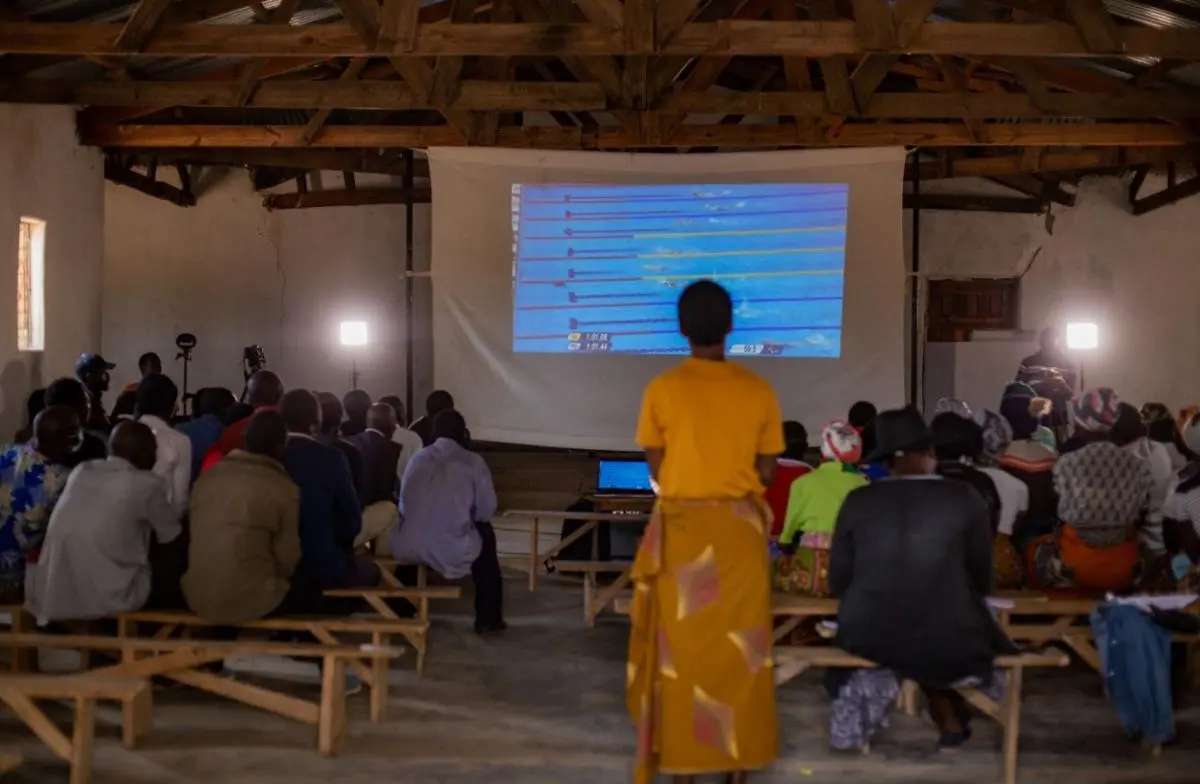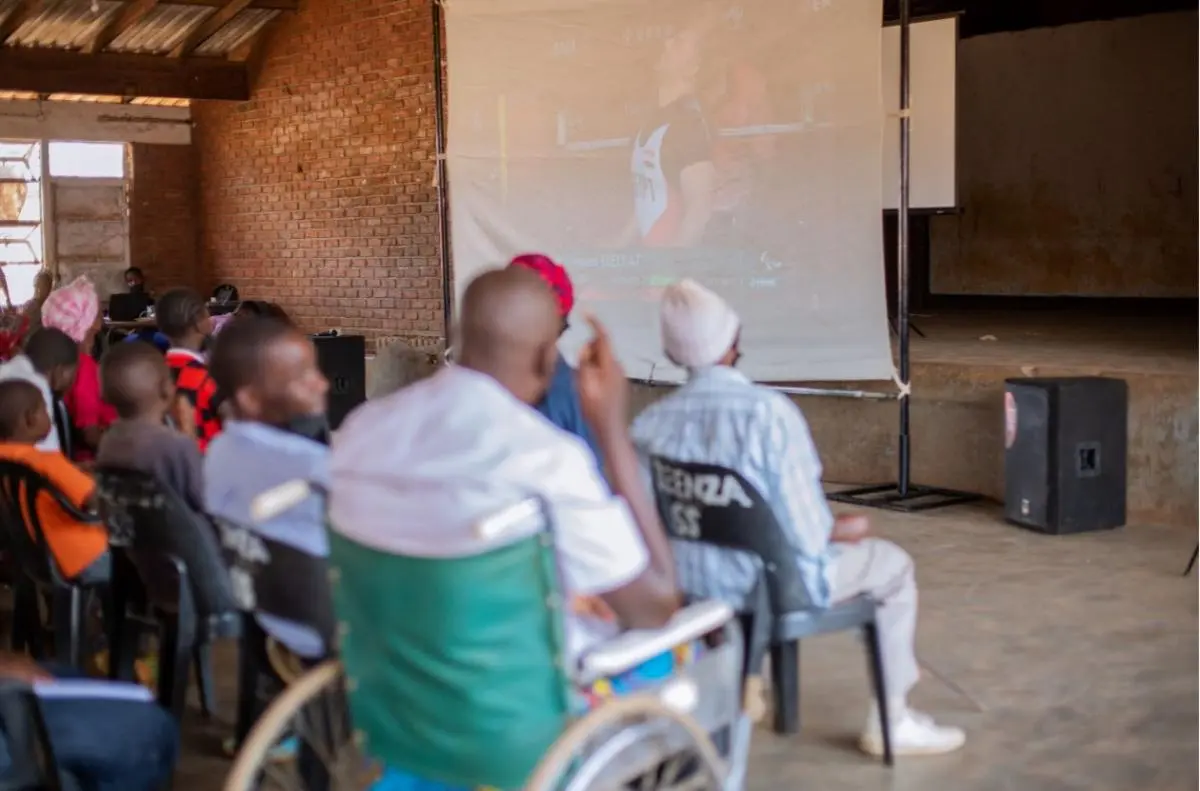
CHANGING ATTITUDES WITH VIEWING PARTIES
Change Starts with Sport, and localised viewing parties of the Tokyo 2020 Paralympic Games in Malawi has a tremendous impact in challenging long-held beliefs and stigma attached to persons with disabilities.
Overview

In Malawi, persons with disabilities face stigma rooted in cultural, spiritual, and social beliefs which contributes to their exclusion from education, employment, and community life.
To challenge these narratives, foster inclusion and shift perceptions, the Tokyo 2020 Paralympic Games were broadcast free-to-air in Malawi.
Paralympic viewing parties with local language commentary and culturally relevant storytelling, were piloted in rural communities with researchers measuring what impact watching the sport had on attitudes towards disability.
Who was involved?
The Malawi Paralympic Committee (MPC), University of Malawi, Malawi Broadcasting Corporation, Loughborough University, IPC, Chancellor College, local educators, disability rights advocates, media professionals, and community leaders.
What was done?
The IPC provided free-to-air coverage of the Tokyo 2020 Paralympic Games to 49 Sub-Saharan African territories, which included for the first time the Malawi national broadcaster.
Due to low TV ownership, a strategy to maximise engagement and viewership led to mobile screenings, so-called Paralympic viewing parties, being held in three rural locations in community buildings. These events broadcast highlights from Tokyo 2020, with a well-known sports journalist and a disability rights advocate providing commentary in Chichewa, one of Malawi’s most widely spoken languages. Highlights coverage was supported with other video content, including excerpts of the Netflix documentary Rising Phoenix, short YouTube films of Malawian Paralympian Taonere Banda, and IPC produced videos for their education initiative I’mPOSSIBLE.
In total, 84 participants attended across the three screenings. Audience members included persons with and without disabilities, and comprised community leaders, faith leaders, teachers, as well as general community members. Researchers used several techniques to assess the impact of the Paralympic viewing parties on individuals. Focus group discussions took place both before and after the Paralympic viewing parties so that changes in perceptions could be observed.
What made it special?
The initiative localised global content through language, cultural relevance, and community dialogue. It combined media, education, and participatory methods to foster critical reflection, making it a replicable model for social change through sport. The use of mobile screenings overcame barriers of access, while the inclusion of a Malawian Paralympian created powerful emotional connections.
What changed?
The project demonstrated the immense power of Para sport to shift attitudes towards disability. Viewers described how witnessing the achievements of Para athletes disrupted long-held beliefs that persons with disabilities are inherently limited — not just in sport, but in all areas of life. This helped shift the community’s understanding of support from one rooted in pity or charity to one grounded in the human rights of all individuals. For many, the experience of watching the Paralympics prompted a rethinking of harmful practices like isolating or hiding family members with disabilities, replacing shame with pride and possibility.
Among the sports showcased during the Paralympic viewing parties, Para swimming stood out as particularly powerful. Viewers reacted with awe and surprise, often visibly moved by what they saw. This strong response is closely tied to the cultural significance of swimming in Malawi where the ability to swim is highly valued. Witnessing Para swimming directly challenged prevailing assumptions about what persons with disabilities can do. Despite swimming not being a widely practiced sport in Malawi, these moments from the Paralympic Games resonated deeply, making the sport one of the most emotionally impactful elements of the screenings.
What was learned?
The project demonstrated exposure to Paralympic Games content can shift attitudes towards disability. Localised content, through local language commentary and the integration of national Paralympians into broadcasts, led to even greater engagement and impact through systemic change.
Get started
Use the Paralympic viewing party model and explore resources at makingnoisetoolkit.wordpress.com



